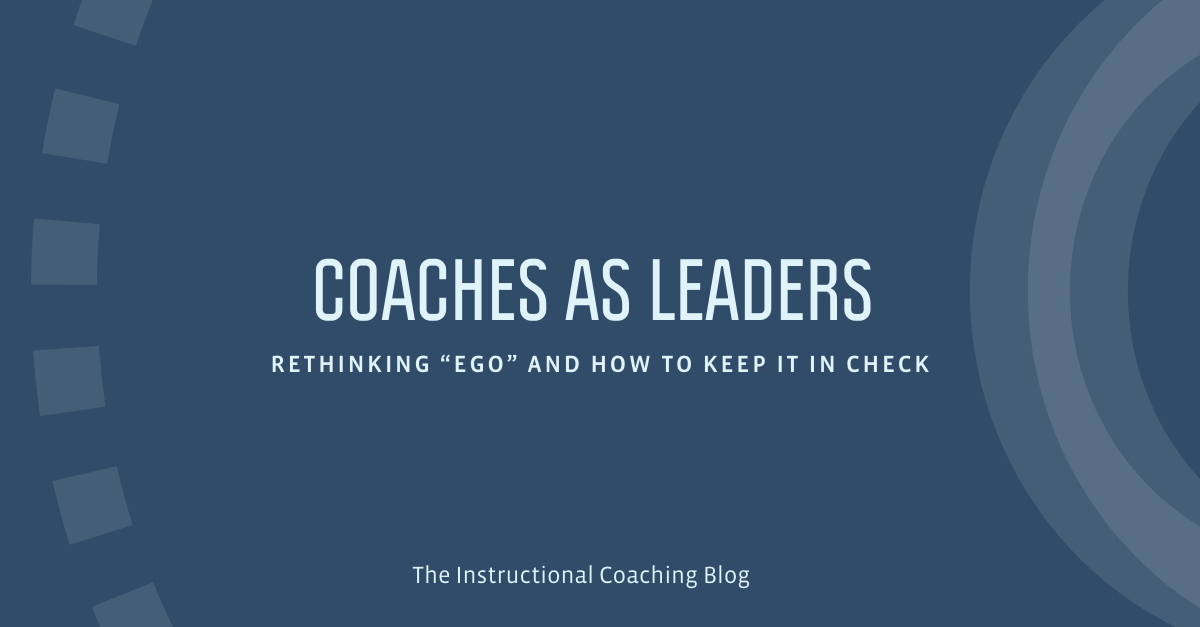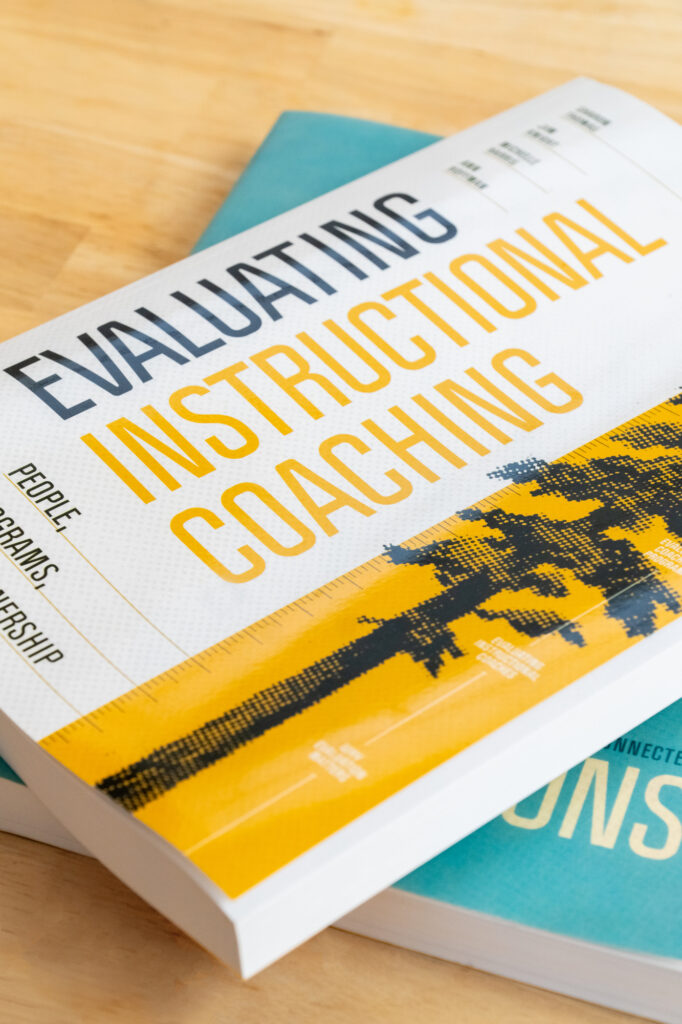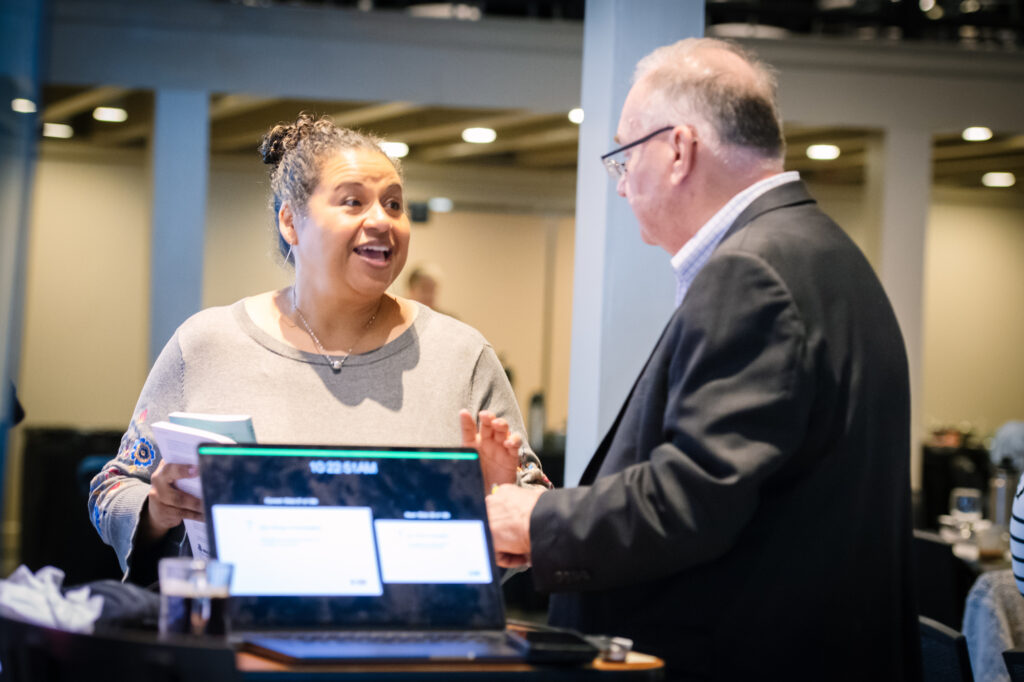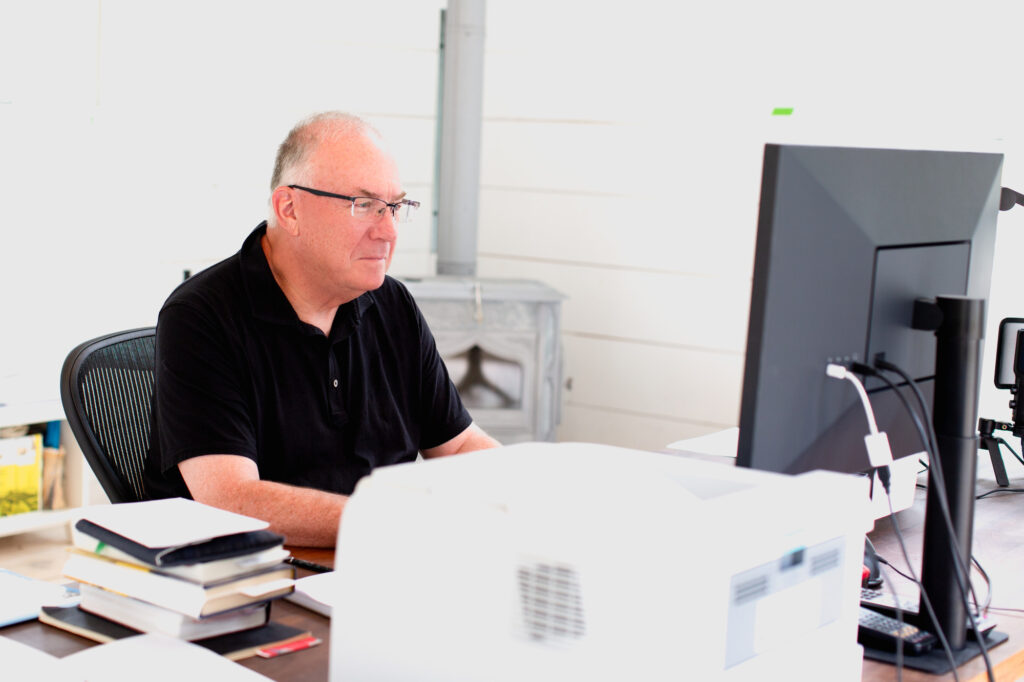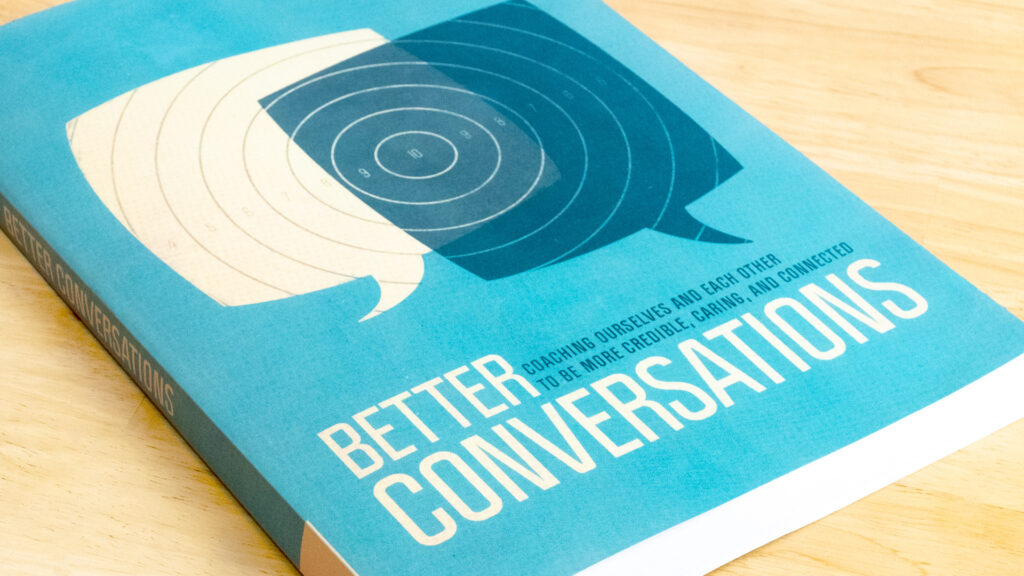One of the big differences between coaches who have a positive impact and those who do not comes down to leadership. In Chapter 3 of The Definitive Guide to Instructional Coaching, Jim Knight describes what leadership looks like for successful coaches and what coaches can do to become powerful forces for good in their schools. Leadership is more complex than we might think, especially for coaches who engage in equal-status, peer-to- peer conversations with others. Leadership among peers in complex organizations involves much more than a persuasively delivered call to action.
In his book, Jim divides leadership into two parts: leading ourselves and leading others. To lead ourselves, we need to know our purpose and principles, how to use our time effectively, how to take care of ourselves, and how to develop habits that enable us to do these things. To lead others, we need to make good decisions, interact with others in ways that expand our capacities, foster deep knowledge and deep implementation, and create alignment with others.
As leaders we tend to ignore our own bodies and minds when it comes to putting others ahead of ourselves; however, we can put others ahead of ourselves and stay boundaried in doing so.
“The most compassionate people are also the most boundaried” – BreneBrown
What do we mean when we say “putting others ahead of ourselves”?
Ryan Holiday in his book Ego is the Enemy (2016) explains that when we talk about putting others ahead of ourselves, we aren’t talking about constantly doing for others and not for ourselves. We are talking about thinking about when we get stuck as leaders.
Every time we get stuck on a problem or an obstacle, we must check ourselves. Holiday (2016) encourages us to ask ourselves “Is this because of my ego? Am I thinking that the only way is my way right now and that I need to win at the expense of others?”
Ego gets in the way
Leading others calls us to rethink the idea of ego. Ego gets in the way of leading in three ways:
Aspirational leadership
You might have a dream you’d like to accomplish. Perhaps many people around you are encouraging and supporting you, yet you are spending your days wondering what people will think of you, of your achievement. Would they like it? Aspirational leadership involves talking, rather than doing. You may even find yourself in a ‘spin cycle’ – you spin and admire a problem, but you can’t get out of the admiration of that problem until you actually do something about it. This situation is an optimal one to check your ego.
Succeeding
Howard Hughes had a highly successful tool company, but the success he was feeling was fueling his ego. He thought he could do it all – make a movie company, fly jets, etc. He spent billions of dollars and wasted his talent, his time, and his money.
Liz Wiseman (2010) says that it’s not about how much you know, it’s about what you know the people you surround yourself with can do. According to Liz Wiseman (2010), you need to multiply those people. This means we get to know our colleagues and give them space, time, and autonomy to do what they do best. And we work together to solve challenges. We don’t have to do it all. We need to know what we’re good at, and help the people around us be good at other things. Then, we can use that to keep being successful.
Failing
Our ego gets in the way when we are failing. The CEO of American Apparel, is a great example of this. When American Apparel started losing money, instead of looking into that reality and tapping into the intelligence of the people around him, the CEO blamed everyone else and didn’t take responsibility. He even sued his company for millions of dollars.
ReThink Ego
When you’re leading others, not only should you rethink ‘ego’, but you also need to remember to keep your ego in check.
How do you do that?
- Listening to Others – others may have a perspective that you don’t have. When we listen, we learn from others. Authentic listening is an important way to show respect for others. When we really listen, we have a chance to enter into a deeper form of communication. A conversation characterized by people really listening is humanizing for all parties.
- Be Fully Present – give people your full attention even if it’s only for 5 minutes
- Learn About Others – learn about the people you’re working with; their strengths, where they are challenged; we have to multiply their strengths and help them move beyond their challenges
- Affirming Rather than Judging – we should ask ourselves “how can I notice and name the good?”, “how can I stay out of judgment?”
- Stop Taking Things Personally – leaders can sometimes think that people hate them; they don’t hate you, but they might hate the role you hold. The reality is that titles are divisive, and many times, people push back on leadership simply because of the title they hold.
- Loving Others – Loving your employees, Michael Fullan (2008) explains, is about creating the conditions for people to succeed, increasing their skills, and empowering them to find meaning by fulfilling goals. Loving others means treating people with benevolence and engaging in mutually humanizing conversations.
People who are stuck in ego are working from a place of fear. Fear shows up in hundreds of different ways. The more conversations you can have about kids, what they are learning, and where they need to be, the more it will help people move out of the place of ego.
